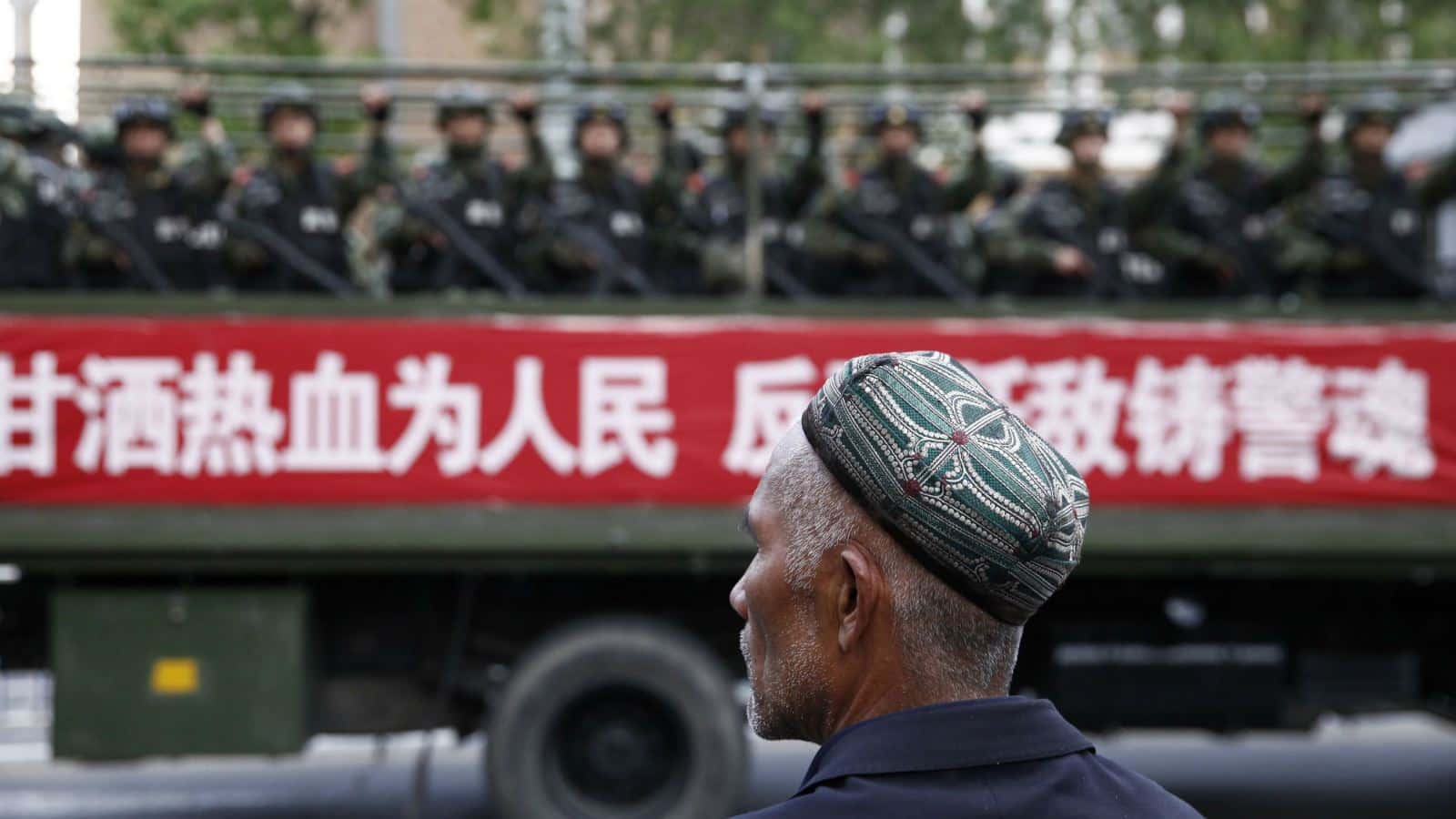Under gårdagen antog Kinas lagstiftande församling en kontroversiell anti-terrorlag som presenterades redan tidigare i år.
Lagen fick redan då kritik för sina svepande formuleringar, vilket skulle göra det möjligt för myndigheterna att slå till mot i stort sett vem som helst.
Kritikerna blev knappast lugnare av den nya lagens hastiga införande och breda befogenheter. BBC listar vad bestämmelserna innebär i praktiken:
What are the new measures?
* State media report that a new counter-terrorism agency and a national intelligence centre will be set up. Professional anti-terrorist forces will also be established
* Telecommunications and internet providers will have to ”provide technical support and assistance including decryption”, and will be made to ”prevent dissemination of information” on extremism
* Police forces can now use weapons directly in ”emergency circumstances” when facing attackers with guns or knives
* The military can now also venture overseas on counter-terrorism operations
* Disseminating information about terrorist activities is now banned, as is fabricating stories about fake terror incidents
* Except for pre-approved news media outlets, nobody is allowed to report on a terror attack nor the authorities’ response, online and offline
Förutom faktumet att en helt ny myndighet ska sättas upp för att bekämpa terrorism, så är innebär den andra punkten att Kina per lag får tillgång till känslig information och den fjärde punkten kommer öka landets militära närvaro i utlandet.
Från och med januari kommer internetleverantörer och telekomföretag tvingas dela med sig även av krypterad information till Kinas myndigheter. Det får utländska företag som verkar i landet att oroa sig ytterligare för den redan utsatta situationen vad gäller immaterialrätt.
Vidare innebär lagen att ingen som helst information online längre kan hållas hemlig, vilket fått bland annat Human Rights Watch att tala om såväl ignorans mot internationella standarder som brott mot mänskliga rättigheter.
För som bland annat CNN uppmärksammar, så kan den stora mängden data som myndigheterna nu får tillgång till givetvis också användas för att kontrollera befolkningen i stort:
However, some analysts feel that the purpose of the bill is aimed at control of the Chinese population, rather than curbing domestic and international terrorism.
”In my opinion they’re using the pretext of what is occurring globally as efforts to increase their control over the domestic population,” James Leibold, senior lecturer in Chinese politics at Australia’s La Trobe University, told CNN.
(…)
”One of the big concerns I have with this draft counter-terrorism bill is that the definition of terrorism is quite vague and open-ended and if we look at how Chinese officials and the media have used the terrorism tag in the past, it’s chiefly applied to the Uyghurs as well as the Tibetans,” Leibold said.
”It’s applied to people who disagree with policies of the Chinese Communist Party.”
Lagen har antagits snabbare än många väntat sig, vilket enligt Kinas myndigheter beror på den allt mer akuta situationen vad gäller terrorism i landet.
Problemet existerar oförnekligen; under julhelgen stod delar av Pekings nöjes- och shoppingdistrikt Sanlitun tomt efter ett terroristhot.
Samtidigt fortsätter myndigheterna sin hårda linje för att handskas med situationen, eller till och med för att kontrollera narrativet. Senare i veckan kommer den franska journalisten Ursula Geithner att utvisas från Kina, på grund av en artikel om hur Kinas repressiva politik mot den muslimska minoriteten uigur skapar en ond våldsspiral.
Den nya anti-terrorlagen ger alltså myndigheterna ännu större spelrum att fortsätta med precis samma hårdföra politik.






